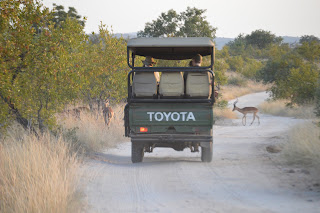So, those last minute weekend trips are back. Most places no longer require COVID testing or quarantine. For my quick trip to London, I simply booked a flight on my phone the day before, and went to the airport with my passport. It is true that flight prices are through the roof, but if you are flexible with dates, then you can find something affordable, even last minute.
Why London? I was anxious to visit my elderly mother and spend some time with family. I also had some tests to take for my Minnesota teaching license, (its a long story!) and London happens to have a testing location.
I headed down to Holborn after peak hours to make my testing appointment. Most changes in London are for the better, and I am now able to pay for everything with a foreign credit card and there is no need for cash.
I did get on the wrong train at first, but a perfectly intelligible intercom voice told me when to get off and change for the Metropolitan tube line. I found the test site easily after consulting Google Maps, and was allowed to take the test early. I found myself finished by noon and bought a coffee across the road. Free wifi enabled me to plan my next move. There was a time when you couldn't travel without a phone and data plan, but I have found free wifi at coffee shops and airports very useful.
I was delighted to find myself only one block away from the British Museum, which is open, and free! Since it was beginning to rain, I took advantage of this easy access to one of the best museums in the world,... well, certainly one of the largest. The place is huge and sprawling with over 60 galleries covering historical culture from all over the globe. Most people go to the Egyptian sculptures first, as did I, and view the Rosetta Stone.
I enjoyed the Greek and Roman stone sculptures, many without their heads. In the architecture exhibit there were parts of famous buildings like the Parthenon. I started to wonder about the ethics of removing these priceless pieces from their original homes. Some plaques suggested that they had been gifts to wealthy benefactors long ago. I am sure there are some countries now wondering why they parted with part of their heritage and culture. Or maybe they are happy to have their history safeguarded and put on display for millions. It is hard to say.
My favorite gallery was dedicated to African culture. I may be biased because of my time in Nigeria, as I have some background knowledge of the places and stories. But even without this connection, the exhibit is worth seeing with its huge masquerades and the 'Tree of Life' made from the discarded weapons and arms from recent conflicts.
The number of exhibits could keep you busy all day. I did't have that luxury so simply wandered around and stopped whenever something caught my eye. These highlights included the Saxon burial sites, medieval monastic tiles, and travel journals from early explorers. The building itself is interesting with its great open court yard and staircase displays. I also found the information posted about each piece especially interesting, learning the what and why of the people who created and enjoyed these works of art.
There is a predominance of artifacts used in death rituals, and the museum embraces this with their "Living and Dying" gallery. We remember people by the way they lived, and how they died.
There are reminders of COVID everywhere, but they are all but ignored: signs about wearing a mask, about booking tickets online, and keeping your distance. These signs have become part of the museum's record of a past age. We can now look back and remember all we had to do to prevent the spread of the virus.
Traveling back to Abuja, I was reminded again of how much easier it is to travel now. This partly due to the relaxed measures, but also due to the way rules are no longer enforced. Barely anyone wore a mask on the flight, despite being told they must wear one at all times. And most of the passengers had failed to fill out the required government travel documentation despite this being a mandatory requirement for entry to Nigeria for the last two years.
We are all ready to be done with COVID. We want to go back to our normal activities without being told we can't. And I am glad of the opportunity to spend time with family in London... and make use of the facilities of the British Museum.

















































